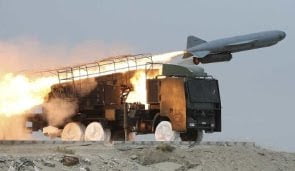Turkey could host advanced U.S. radar to confront Iran missile threat

Turkey is poised to become the first line of global defense against the threat of Iranian ballistic missiles, with the United States considering installing sophisticated radar systems in the country, according to a U.S. report.
According to the Washington Post, the U.S. is close to activating a partial missile shield over southern Europe. As part of the deployment, Department of Defense officials are nearing a deal with either Turkey or Bulgaria to install high-powered X-band radar.
If a deal goes through, the initial phase of the shield could become operational during 2011, the Post said.
Plans by the previous U.S. administration of George W. Bush for a missile shield across all of eastern Europe strained America’s relations with Russia. But the current U.S. government under President Barak Obama has pressed on with the project, adopting a gradual approach that will see a more flexible shield system take shape by 2020.
America will likely integrate a Turkish radar capability with parts of its regional shield based aboard its Meditarranean fleet, as well as with systems it has sold to the United Arab Emirates.
Turkey could also receive Patriot anti-missile systems from the U.S., while Turkish press reports suggest plans in the country to acquire long-range offensive missiles from its American ally.
Yet in Turkey, the prospect of tightening already strong cooperation between Turkey, a NATO member, and the West has raised protests. Some in Ankara view an American radar system directed largely at Iran as a contradiction to recent Turkish policy, which has pursued friendly relations with Iranian President Mahmoud Ahmadinaejad.
Obama has alredy been rebuffed once before by Turkish Prime Minister Recep Tayyip Erdogan, who in 2009 declined a meeting requested by the U.S. president to discuss deployment of American missiles on Turkish soil.
Yet Turkish sources report that with global opinion turning against Iran after a recent round of UN sanctions, Erdogan may reconsider and agree to host the radar, fearing diplomatic damage if the systems go to neighboring Bulgaria instead.

 Ακολουθήστε το
Ακολουθήστε το